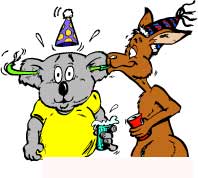Archive for November, 2011
Robert Goodland: The Brown Rice Hero
Posted by Ez2bVeggie.com in Uncategorized on November 8, 2011
The large man seems tiny up on the huge stage, but his voice booms out over the audience and brings a big reaction as he reads from his list. “Mu, … kimchi!” Some people chortle. “Gakdugi, miyuk guk!” More people giggle. “San yachae dolsot bibim bap!” The audience laughs and claps freely, possibly at the British-Korean accent, and maybe it’s at his relentlessly convincing yet good natured listing of traditional Korean vegetarian dishes.
On the high note at the end of his speech he steps around the podium to face the audience and give a long, low bow. Soon after his presentation I have a rare opportunity to sit down with Robert Goodland, former environmental advisor to the World Bank for 23 years.
JW: How do you do, Dr. Goodland?! Can you please tell us a bit about yourself?
RG: “I’m an environmental scientist, and a tropical ecologist. I worked for the World Bank in Washington DC as their environmental advisor for 23 years and I found the job very difficult because most of what they did was not very good, so I drafted a whole slew of policies which, one by one, they finally implemented.
“For example, they were effectively promoting a method involving deforestation to cure tobacco, which is very bad for the forest and tobacco is very bad for your health, but it was very unpopular to say that the bank shouldn’t give loans for growing tobacco then, which was back in 1979-80.
“I wrote most of the bank’s social and environmental policies; one was on environmental assessment, one on wild lands and biodiversity, but the one I’m most proud of is on indigenous people: vulnerable ethnic minorities. My hobby horse right now is pushing something called ‘FPIC,’ which stands for Free Prior Informed Consent; FPIC as known to the insiders.
“We had a good long struggle for 15 years but now it is enshrined in the UNDRIP or the United Nations Declaration on the Rights of Indigenous Peoples, which is now exactly five years old. It was circulating for ten years at least, but now even US and Canada and most nations have signed it; the hold-outs were Canada and the US.”
JW: What brings you to Gwangju?
RG: “These days, I’m working on promoting the fact that all our commitments to Kyoto and Cancun and everywhere else can be met if we all go meat-free just 25%. This is because at least 51% of global greenhouse gas emissions are because of the life cycle and supply chain of livestock products (meaning all meats, dairy, and by-products, and the feeding and transport of them from birth through to final end-use).”
[ * Read Dr. Robert Goodland’s study Livestock and Climate Change.]
“The world raises over 50 billion farm animals each year for food and this has a major impact on global warming. This is not just from the cows producing methane in their farts, but also because it leads to the destruction of tropical rainforests and other special places of nature, as farmers chop down old trees to plant grass to grow animals for meat. This means other animals that live wild amongst the old trees face extinction, and soil erosion and depletion and other environmental threats arise.
“And yet meat is just not efficient to produce, compared to vegetable-type food sources. For example we need 500 times as much land to produce 1kg beef as compared with 1kg vegetables. We need 30kg of vegetation to produce 1kg of beef. Or, to put it another way, protein derived from meat requires 25 times more energy to produce than comparable protein from grain. And finally, with regard the growing problem of water, to produce 1kg of wheat we only need about 250 liters, but we need about 25,000 liters to produce 1 kg of meat!
“Also, these days more than half of the maize we grow goes to animal feedlots” [massive industrial farms], “while one child dies every 45 minutes from malnutrition-related sickness.”
JW: How has your trip to Korea been going?
RG: “On this trip here to my wife’s first homeland (in Korea) I’ve discovered brown rice. A question for local people is: Why isn’t brown rice more commonly eaten here?! It’s much more nutritious, and a lot more delicious than white rice!
“I’ve also discovered the hiking trails of Jeju Island. There’s soon going to be an island-wide interlinking network of trails, but for now, though there are only a couple, they are wonderful.”
By Julian Warmington
Read or listen to more by Robert Goodland here.
What is Movember?
Posted by Ez2bVeggie.com in Uncategorized on November 1, 2011
I wanted to check my students knew why I was starting to look kind of strange in class, and, I also wanted them to see what could be done with the simple editing tools available for their great video cameras on their nice expensive cellphones. So, using my clunky, strange (five-year-)old Sony Handycam, I recorded them all one at a time, and then ‘spliced’ the best parts of the clips together and interspersed it all with some ‘annotations’.
It was the first time I’d made a new clip like this. I know it’s pretty basic, but, what do you think about our work?
 Movember: a survey. – [click here or on the Early Birds icon]
Movember: a survey. – [click here or on the Early Birds icon]





